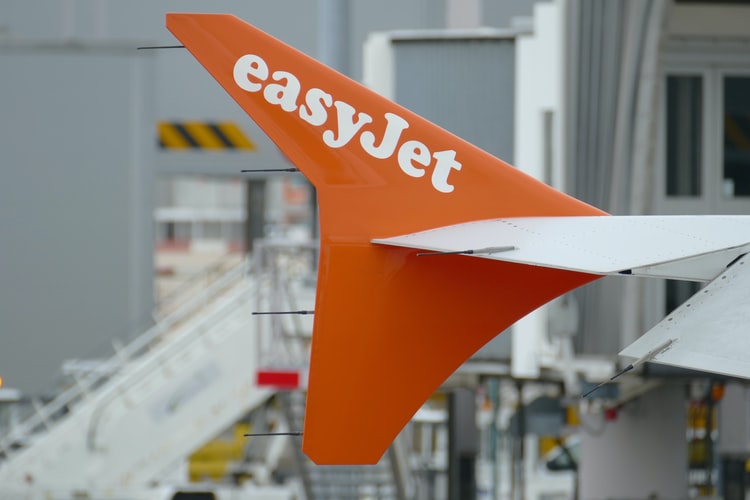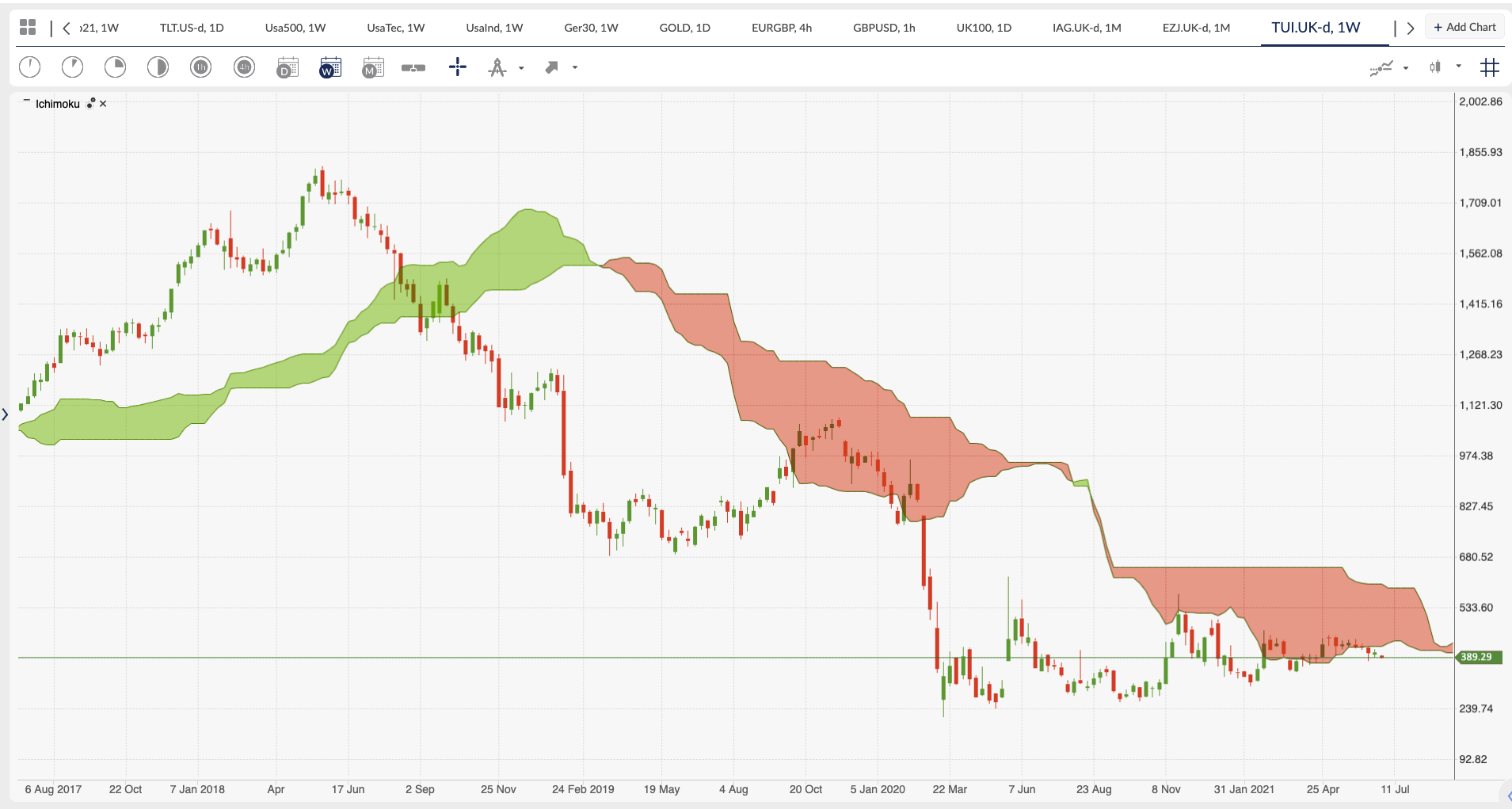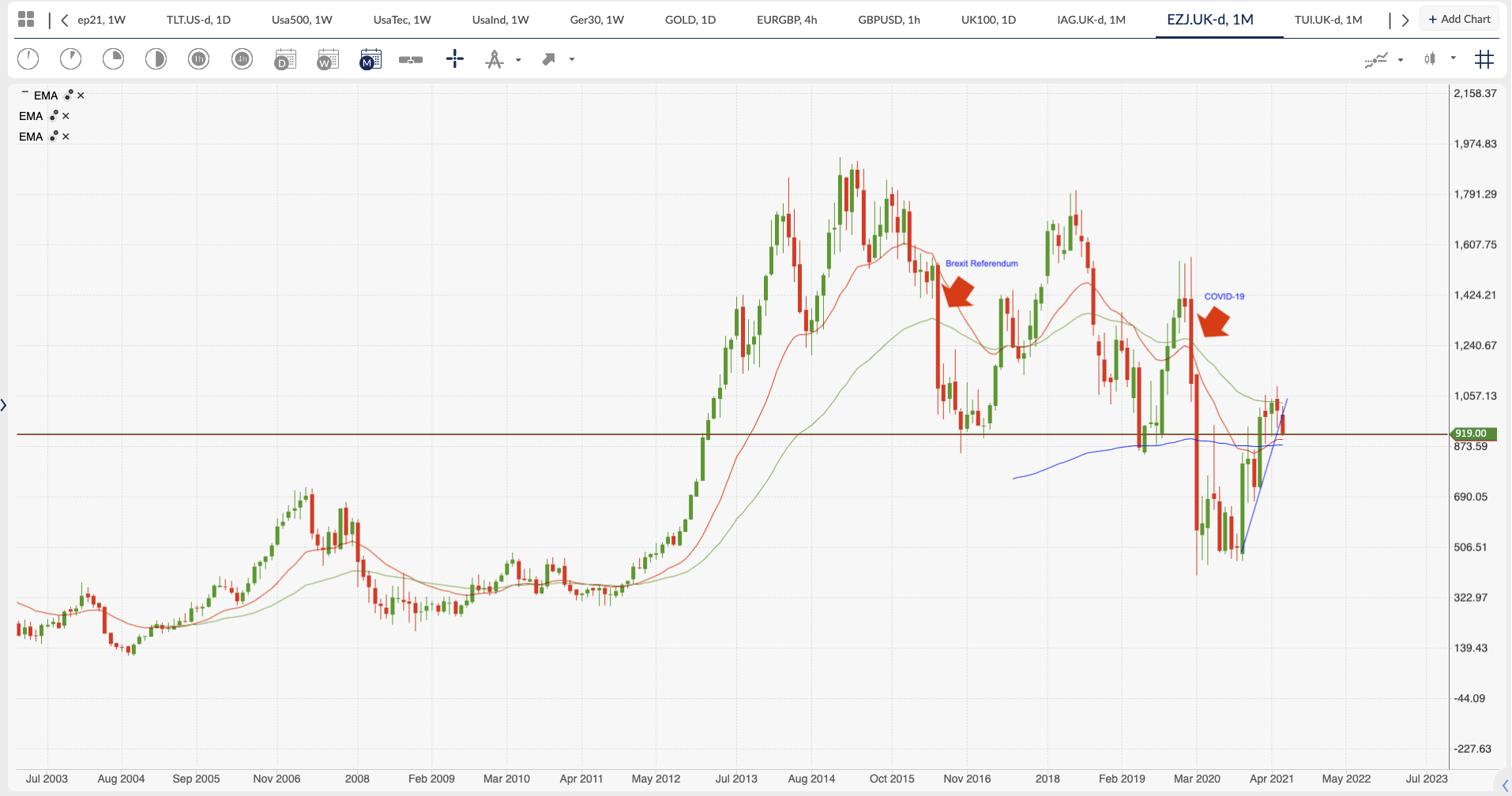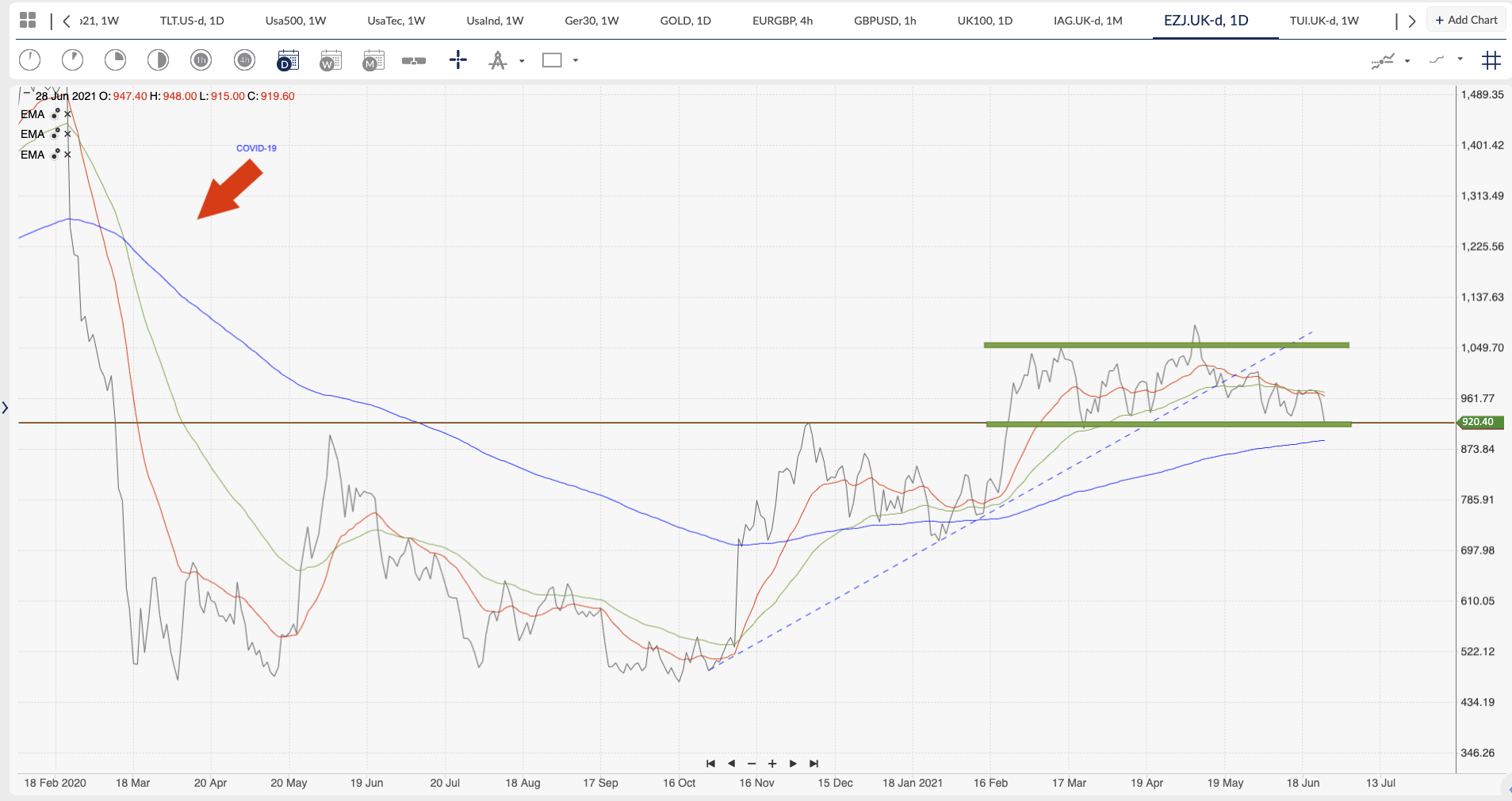Easy Jet Weekly Investment Idea


There is less than 4 weeks to go before the schools are all out for summer holidays. Does not seem that long ago that schools re-opened allowing parents to get back to work, but those holidays are for the teachers as much as the children and it is not like they have not all been working as hard as they can, maybe harder than usual.
With the vaccinations were supposed to come returning liberties, and normalisation of peoples lives. Unfortunately, the variants of COVID-19 are starting to cause some serious disruptions, and more is needed to be done to curtail the exponential rate of infections.
We are up to Delta, in the Greek alphabet for the most known and widely found variants and they are starting to sound like an Options trader’s pit, with Alpha and Beta being first detected in the UK and Gamma originating form Brazil. The current disruptor is Delta, who was first detected in India. Each variant has several mutations, and all were detected in December 2020, so have been known to the authorities for a whole 6 months now.
Although the mutations and variants go all the way through to Zeta the current vaccines seem to be doing a good job of immunising those that have been double vax’d. The 14-day COVID-19 death rate for the EU/EEA based on data collected by ECDC from official national sources for 30 countries, was 14.4 (country range: 0.0-78.3) per million population. The rate has been decreasing for eight weeks.
Among the 15 countries with high 14-day COVID-19 death rates (at least 10 per million), an increase was observed in one country (Slovenia). Stable or decreasing trends in death rates of 1-10 weeks’ duration was observed in 14 countries (Bulgaria, Croatia, Cyprus, Czechia, France, Germany, Greece, Italy, Latvia, Liechtenstein, Lithuania, Poland, Romania and Slovakia).
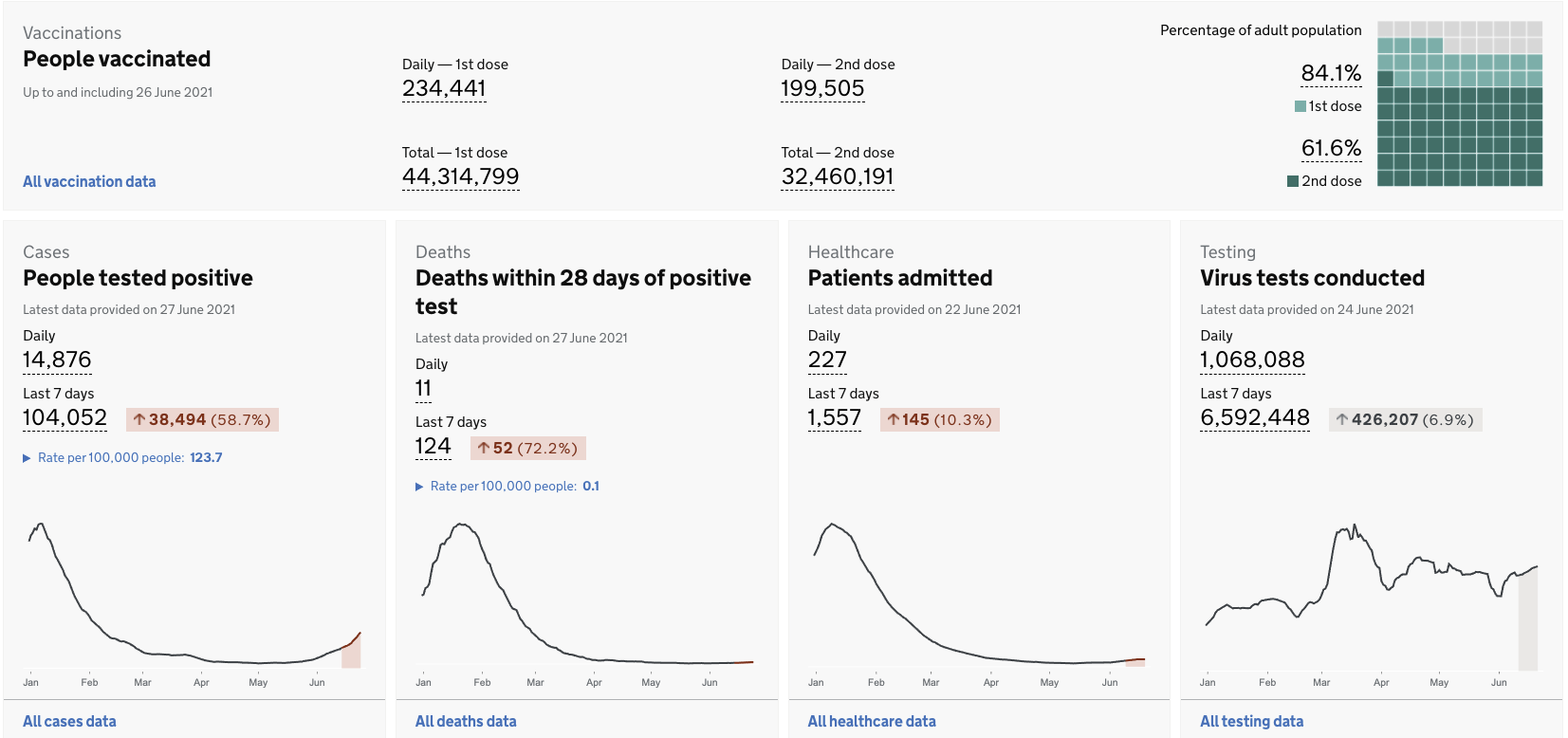

For the UK though, they are one of 7 countries which are reporting an increase in notification rates compared to the prior week’s observations and this is going to cause problems for those travellers wishing to get away this summer.
The UK has started to announce which countries citizens are welcome to visit the UK should they be fully vaccinated and some holiday destination favourites like the Balearic Islands, Madeira and Malta were added to a ‘Green’ safe list for UK travellers to visit.
Unfortunately for the UK travellers though, there is an increasing negative attitude towards the UK from visiting other places. If a country does allow a UK citizen to travel into it, the common protocol is that the traveller must quarantine for up to 14 days upon arrival. Which will be the worst holiday ever, should you only have 10-14 days of annual vacation to use up. This type of restriction is going to cause a lot of cancellations or postponements.
See real-time quotes provided by our partner.
Travel companies like TUI have been trading in a relatively tight sideways range and following the tighter restrictions over Christmas, they have been able to stem the negative outflow of investment. With the summer holidays looking ever so more likely to be ruined by Covid for a second year, travel companies, airlines, service industry and tourism are likely to take hits so hard there may not be an industry left.
TUI had been declining in share price from 2018’s highs of 1783.00 and are now trading around 391.00. In 2018, Thomas Cook shares were plunging due to profit warnings. Brexit had taken its toll on the travel industry, and it has been a downhill trend since as eco friendliness took more of a centre stage and airline travel was seen as a big cause of carbon pollution and therefore bad for the environment.
See real-time quotes provided by our partner.
Low-cost airlines such as EasyJet have been oscillating lower since 2015, having been able to claw their way back to near all-time highs following the UK referendum to leave the European Union, only to suffer from the 2018-2019 uncertainties for the travel industry, before being gutted by the coronavirus disruptions.
It makes sense that sovereign countries wish to stop the transmission of the COVID-19 variants and reports of Germany’s Angela Merkel trying to get a consensus vote on quarantining travellers is an understandable position. No leader wishes to be accused of allowing further disease to spread through a population, the question is at what point do we accept that we have COVID in our lives for ever more and allow the current healthy to go about their business and for businesses to stay in business?


When you think EasyJet, the colour orange and short haul flights into Europe spring to mind. The current destination map on their website is dominated by a sea of restricted countries with only Iceland, Albania, Montenegro and Hungary allowing visitors to arrive without restriction.
Clearly the travel industry is in distress and the political will seems less inclined to bail out the airlines as they did with the banks during the great financial crisis in 2008-2009. There does not seem to be any inclination to create a nationalised airline or travel company. Instead, the government are going to put their efforts into schemes like furlough and vaccinations. The problem is the longer planes remain grounded the more airline pilots and crew are forced to change careers. From personal experience, I had a plumber come and fix a sink a few weeks ago who had left the travel industry 9 months prior after the first lockdown. Soon, there will not be any employees ready to fly the planes or look after the travellers. Obviously, the knock-on effect moves into the manufacturing of the airlines as well, with lead times being several years and orders having to be made and cancelled for new planes as companies try and work out if or how they will be in business if these restrictions persist.
EasyJet have had to take on more debt, ask shareholders for cash and they have sold off some airplanes, just to survive this long. They are also having to negotiate with aircraft manufacturers like Airbus for flexible, deferable, delivery schedules for new airplanes. The airline said the delivery of 22 aircraft will be deferred from 2022-2024 to 2027-2028. The delivery negotiations will result in easyJet taking no deliveries in 2021, eight in 2022, seven in 2023 and 18 in 2024.
While there are no solutions and just fires to be put out and plates to juggle, EasyJet does not look like a good investment in the near term. June’s price action has made a lower high and a lower monthly low and after a few months of prior consolidation, it now looks ready to test the 2020 lows again.
See real-time quotes provided by our partner.
On a daily chart for EasyJet, the price action has been in what looks most likely to have been a distribution range and we have broken below the support levels. We are also now clearly below the rising trend line from the October 2020 lows, and this swing low would be my initial profit target.
The support levels which may stop a waterfalling price action come from the daily 200 period exponential moving average and the end of 2020 balance area.
But unless there is a fundamental change in the way things are going with regards to COVID-19, restrictions, vaccinations and travel, this larger move to the downside is more likely. The closer we get to the summer holidays and people realising they cannot 1. Afford to spend 14 days in quarantine in a foreign land or 2. Cannot risk booking something to have it all be cancelled last minute. The closer we are to seeing a collapse in price of Easy Jet (EZJ) TUI and British Airways parent company IAG.
